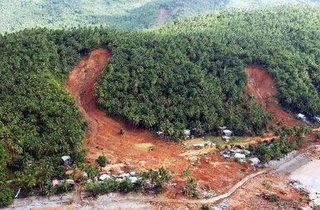 I was in Grade 2 when the first EDSA revolt transpired. I saw the huge crowd and the rallying nuns and soldiers on the TV screen. Totally clueless about the situation, I never had any hint what was happening in my country. I only had the chance to meditate on its message in UP when I received my “radical education”. It must be emphasized that EDSA 1 was a political revolution and not a social revolution. It was a change of political leaders. Nonetheless, this change in political leadership failed to permeate the social psyche of the Filipino people.
I was in Grade 2 when the first EDSA revolt transpired. I saw the huge crowd and the rallying nuns and soldiers on the TV screen. Totally clueless about the situation, I never had any hint what was happening in my country. I only had the chance to meditate on its message in UP when I received my “radical education”. It must be emphasized that EDSA 1 was a political revolution and not a social revolution. It was a change of political leaders. Nonetheless, this change in political leadership failed to permeate the social psyche of the Filipino people.As the history of Latin American countries would show, it is very easy to topple a government but it is quite difficult to build a new one. The experience of the Nicaraguan revolution led by the Sandinistas in 1970s showcased the inherent weaknesses of the people who revolted to protect the gains of the political revolution. Similarly, while the EDSA Revolution is almost universally acknowledged as a great example of democracy at work, many political scientists and sociologists argue that it has failed to actualize the possible gains from a fresh change in government. Filipinos were applauded by the peoples of the world because of the peaceful revolution which toppled the Marcos administration. The example of EDSA was repeated in Eastern European Countries and many countries of
 I participated in EDSA 2 because I fully believed that removing former president Estrada from office would resolve the socio-political impasse. I was wrong. There is more than to removing a corrupt leader. The masses must not be blamed for the rise to power of Erap. Estrada betrayed the confidence of his supporters by living an extravagant lifestyle while in office in parallel to numerous illicit affairs he maintained during his presidency. Public officials must serve as role models because they are the ones people look up for inspiration and guidance. Good government rests upon them because public confidence is imperative in the normal functioning of democracy.
I participated in EDSA 2 because I fully believed that removing former president Estrada from office would resolve the socio-political impasse. I was wrong. There is more than to removing a corrupt leader. The masses must not be blamed for the rise to power of Erap. Estrada betrayed the confidence of his supporters by living an extravagant lifestyle while in office in parallel to numerous illicit affairs he maintained during his presidency. Public officials must serve as role models because they are the ones people look up for inspiration and guidance. Good government rests upon them because public confidence is imperative in the normal functioning of democracy.
As British historian Arnold Joseph Toynbee discovered, nations are often destroyed not by outside forces but by weaknesses within. The failure of a civilization to survive was the result of its inability to respond to moral and religious challenges, rather than to physical or environmental challenges. The Bible declares that "...Every kingdom divided against itself is brought to desolation; and every city or house divided against itself shall not stand.." (Matthew 12:25).






